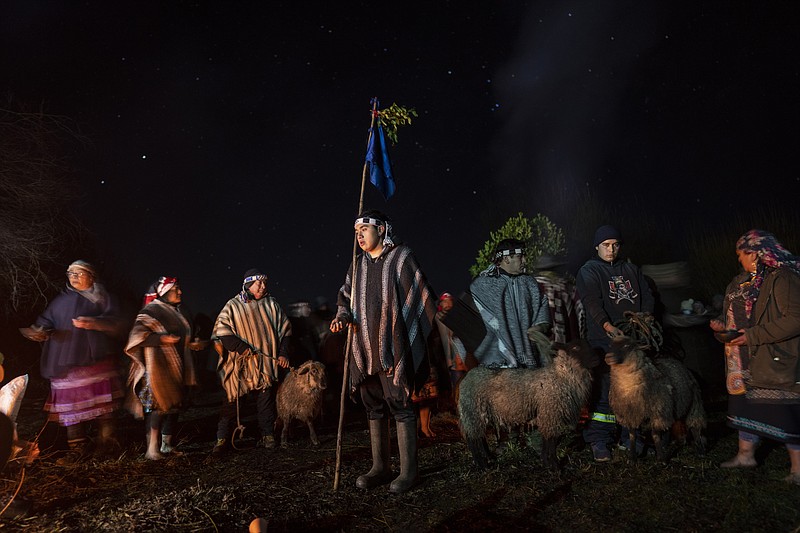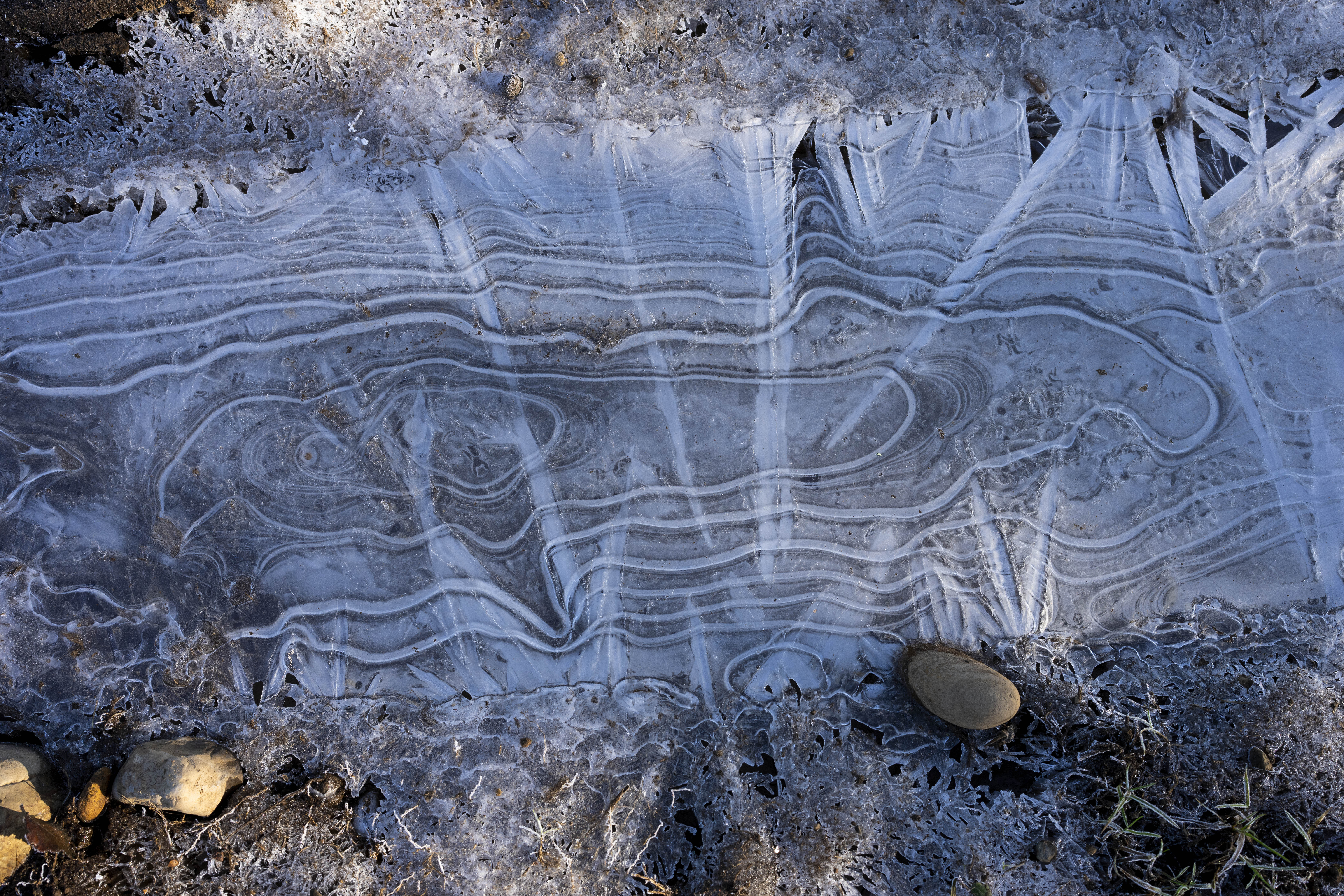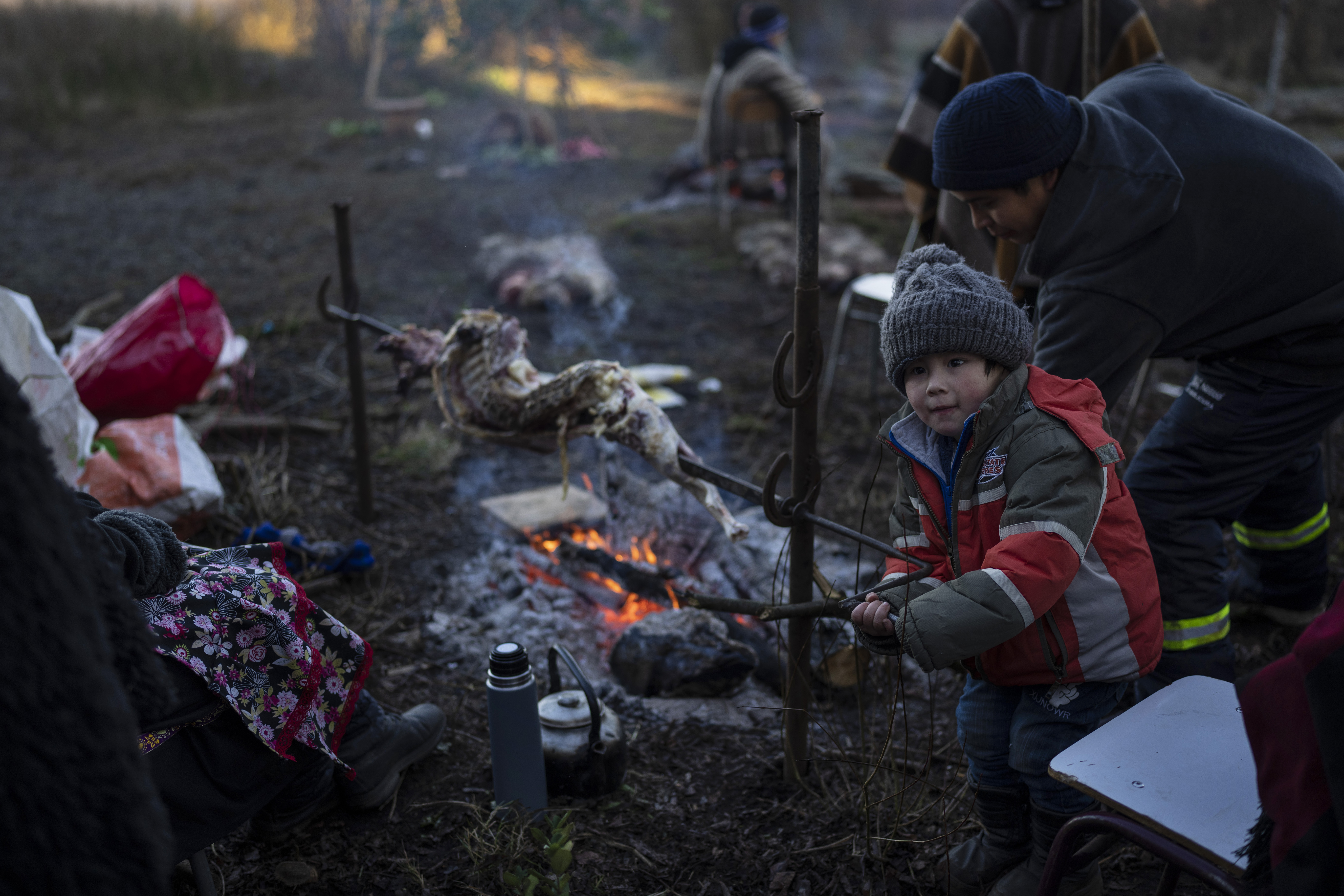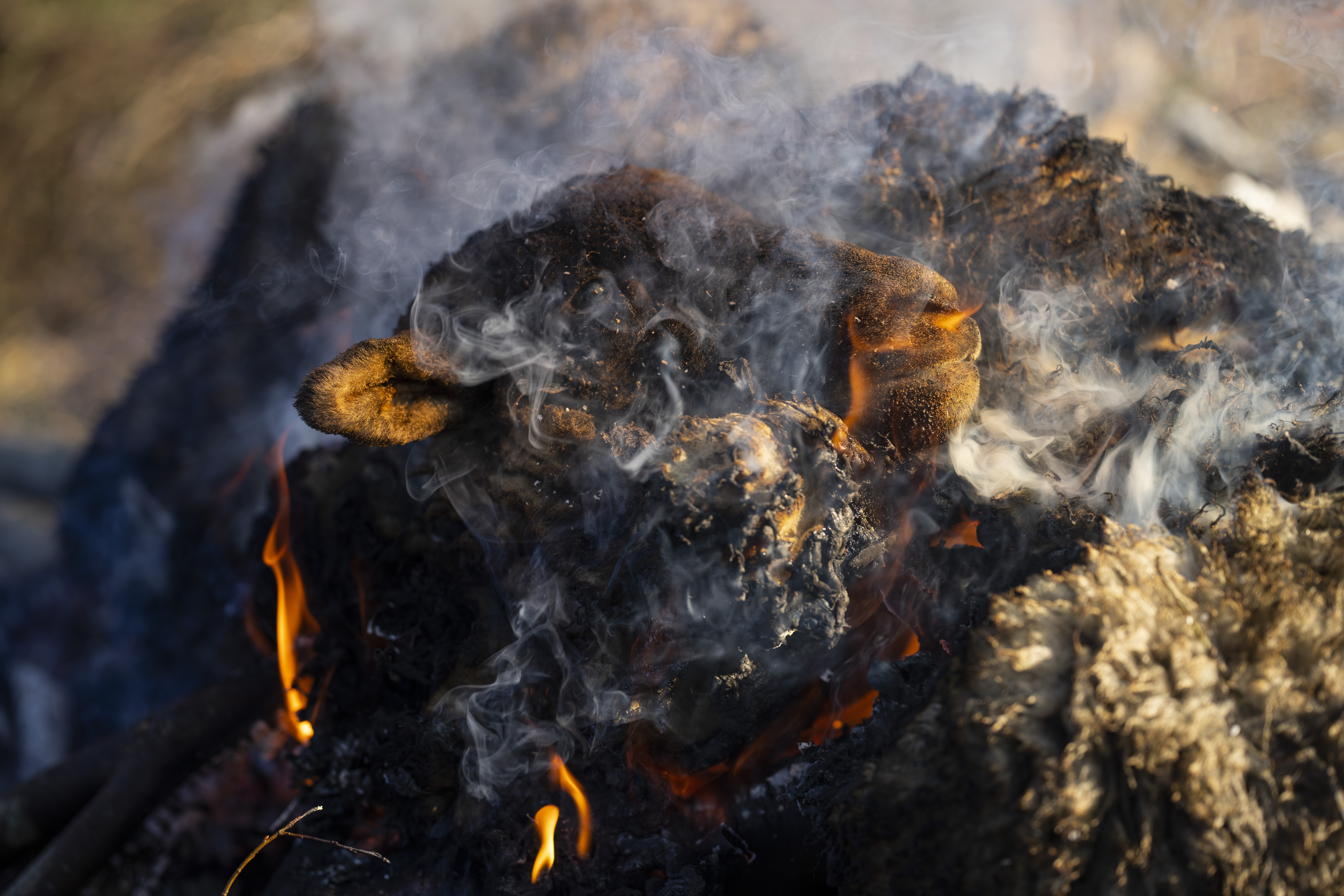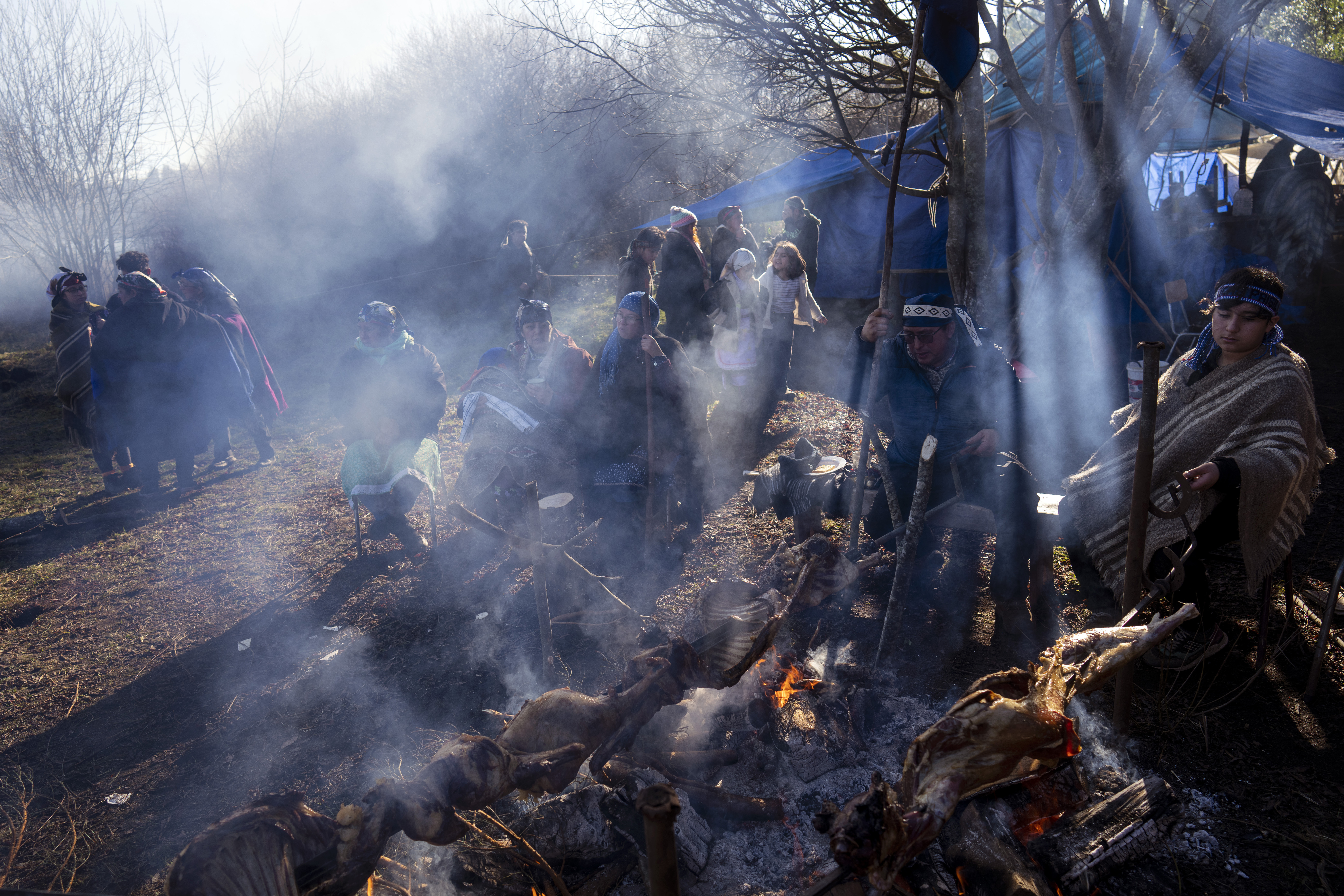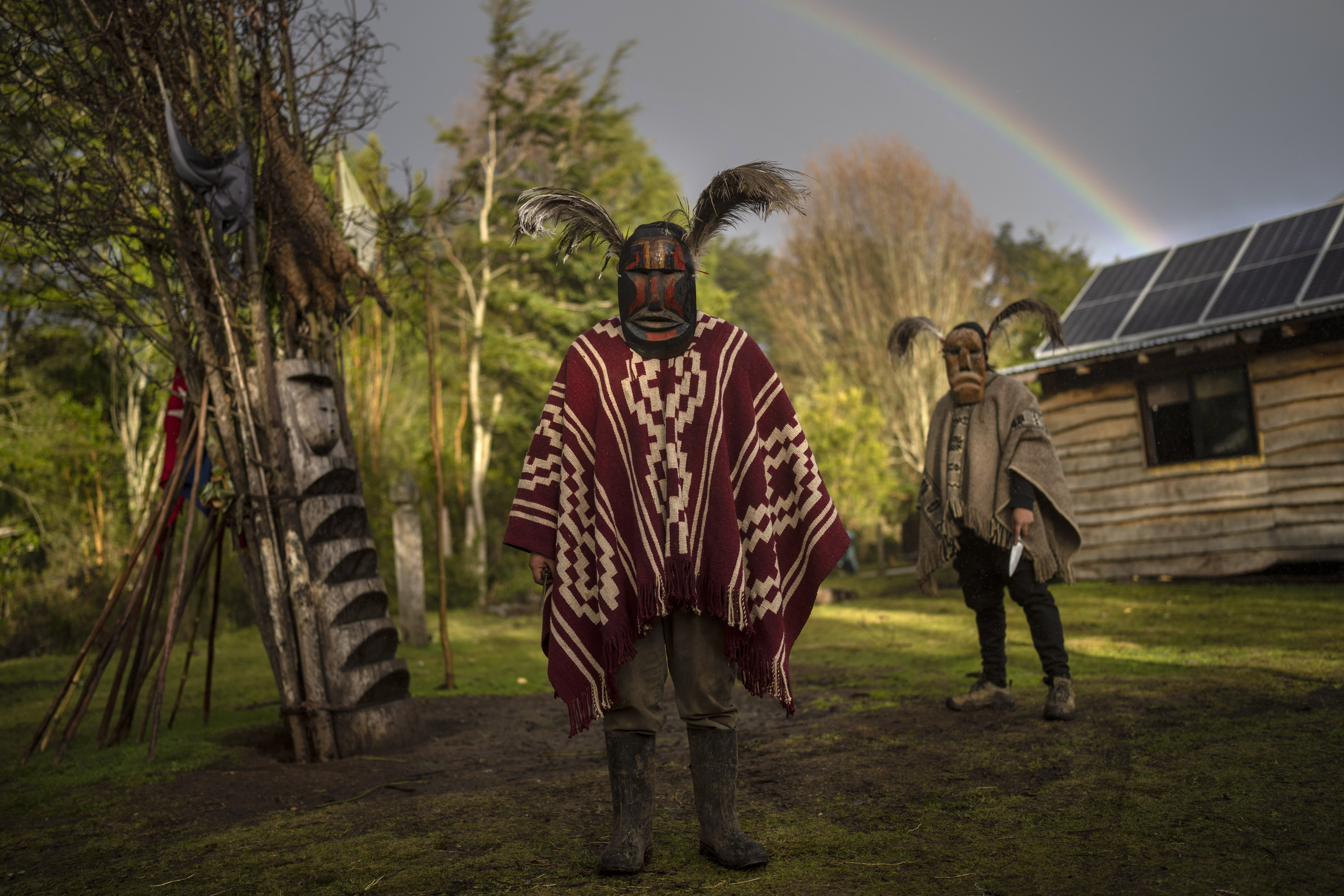ALONG THE PILMAIQUEN RIVER, Chile -- A ceremonial dip in the frigid waters of the fast-flowing Pilmaiquen River in southern Chile was the culmination of the multiday celebration of We Tripantü, one of the most sacred holidays for the Mapuche, the country's largest Indigenous group.
Coinciding with the winter solstice in the Southern Hemisphere, the late June "new year" festivities mark the "new rising of the sun" and signify "the change and renovation of life, in all senses," said Amanda Huichalaf. She took part with her family in the ceremonies led by her sister, the machi or healer and spiritual guide of a Mapuche community alongside the river.
Wading into the Pilmaiquen is a "symbolic way to renew energy," Huichalaf added. Most participants washed their face, feet and ceremonial jewels as frost covered the lush riverbanks.
In the Mapuche worldview, rivers and other natural elements are home to spirits they revere -- like Kintuantü, a protector spirit connected to the Pilmaiquen. The river is also believed to help carry the souls of those buried in a clifftop cemetery on to their next incarnation.
"Water is a pure element. Only with water, the ancestral spirits can travel. The Pilmaiquen River carries in it all our information, carries all our spirituality," said Millaray Huichalaf, the machi.
But the Pilmaiquen, and the ceremonial compound by the cemetery on a cliff over one of its broad bends, is also where the Huichalafs have been leading a battle against energy companies and others in a decadelong effort to reclaim their ancestral lands.
It has included protests, occupations and clashes with police.
"This is where we began the reconstruction of the territory," Millaray Huichalaf said of the wide meadow where she holds a sacred ceremony in the morning during the solstice. She gives thanks to nature's spirits and asks for strength for all living beings.
"In addition to being a healer, I'm also a militant in Mapuche resistance. Every day that I wake up, I think about how I can keep defending the river," she added, voicing hope that her daughters will continue the fight.
One of them goes to school in the nearby village of Carimallin, where Millaray led another We Tripantü ceremony. Some 85% of the 125 kids in the school's pre-K through 8th grade classes are Mapuche, said Gerson López, a teacher there for a decade.
Only half of them are involved in the different Indigenous communities, but they all love the June ceremony, he added.
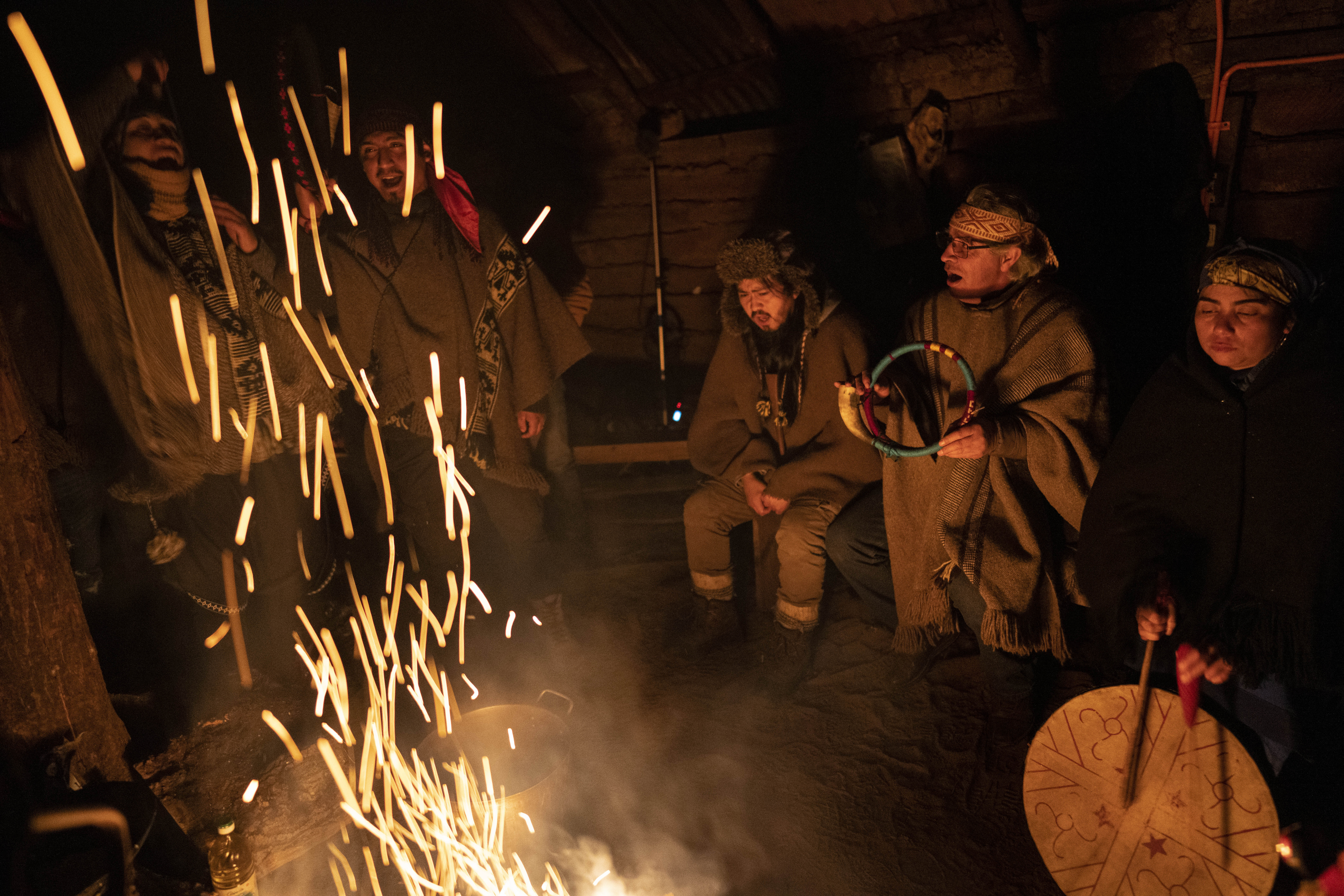 Mapuche community members sing around a campfire as one holds a trutruka horn and another beats a ceremonial drum known as a kultrun inside a ruka, a traditional thatch-roofed rural dwelling, in the culmination of We Tripantu, the Mapuche new year, in Carimallin, southern Chile, on Sunday, June 26, 2022. (AP Photo/Rodrigo Abd)
Mapuche community members sing around a campfire as one holds a trutruka horn and another beats a ceremonial drum known as a kultrun inside a ruka, a traditional thatch-roofed rural dwelling, in the culmination of We Tripantu, the Mapuche new year, in Carimallin, southern Chile, on Sunday, June 26, 2022. (AP Photo/Rodrigo Abd)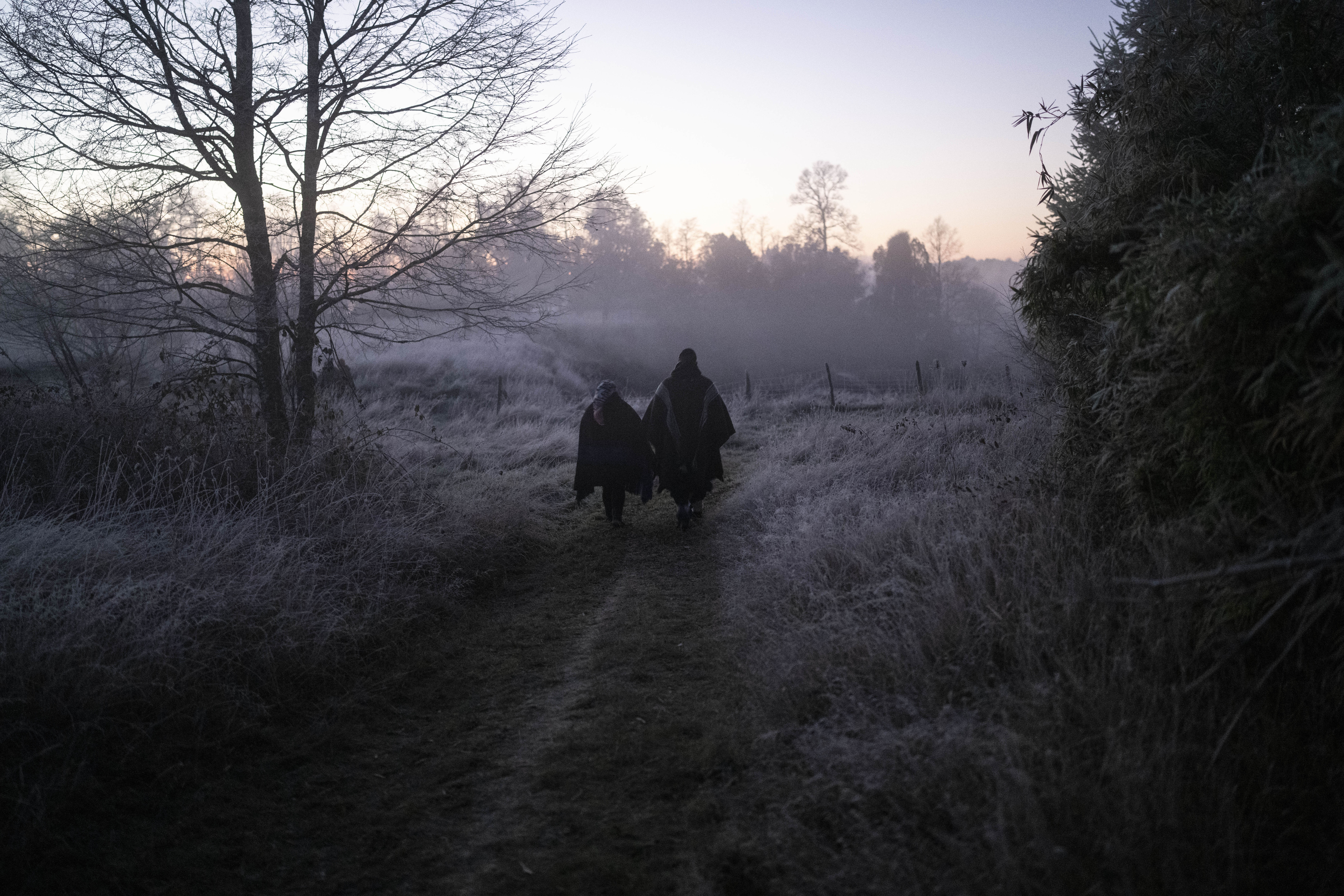 Mapuche people walk through a ceremonial compound by a cemetery on a cliff to the Pilmaiquen River, where they dip themselves in the water as part of a purification ritual marking the culmination of We Tripantu, the Mapuche new year, in Carimallin, southern Chile, on Sunday, June 26, 2022. In the Mapuche worldview, rivers along with most natural elements are home to spirits they revere. The Pilmaiquen is also believed to help carry the souls of those buried in the cemetery on to their next incarnation. (AP Photo/Rodrigo Abd)
Mapuche people walk through a ceremonial compound by a cemetery on a cliff to the Pilmaiquen River, where they dip themselves in the water as part of a purification ritual marking the culmination of We Tripantu, the Mapuche new year, in Carimallin, southern Chile, on Sunday, June 26, 2022. In the Mapuche worldview, rivers along with most natural elements are home to spirits they revere. The Pilmaiquen is also believed to help carry the souls of those buried in the cemetery on to their next incarnation. (AP Photo/Rodrigo Abd)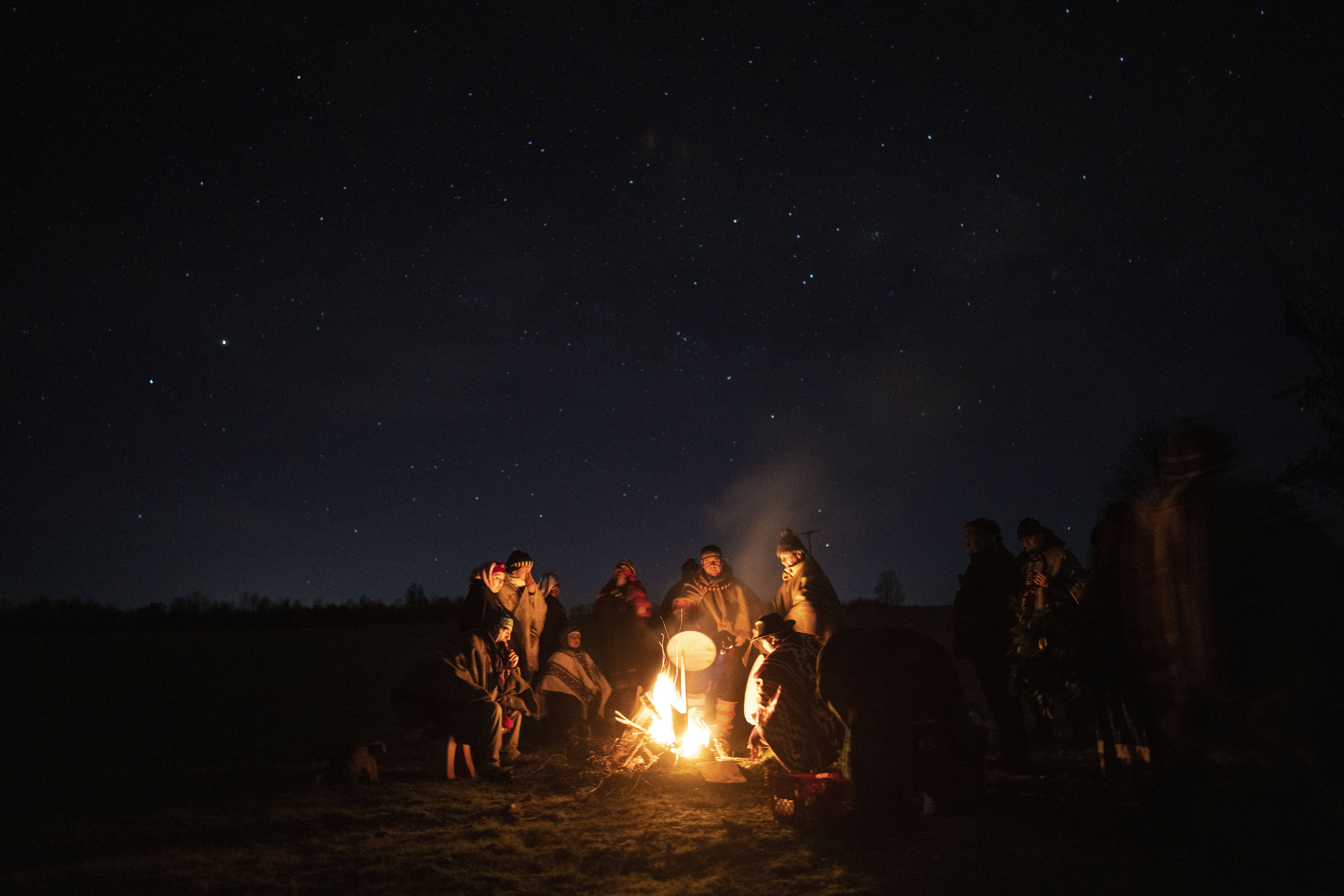 Huenchupan family members gather around a campfire as part of celebrations of We Tripantu, the Mapuche new year, in Lof Soyinka, Los Rios, southern Chile, on Wednesday, June 22, 2022. Coinciding with the winter solstice in the Southern Hemisphere, the late June festivities mark the "new rising of the sun" and signify "the change and renovation of life, in all senses," according to Amanda Huichalaf. (AP Photo/Rodrigo Abd)
Huenchupan family members gather around a campfire as part of celebrations of We Tripantu, the Mapuche new year, in Lof Soyinka, Los Rios, southern Chile, on Wednesday, June 22, 2022. Coinciding with the winter solstice in the Southern Hemisphere, the late June festivities mark the "new rising of the sun" and signify "the change and renovation of life, in all senses," according to Amanda Huichalaf. (AP Photo/Rodrigo Abd)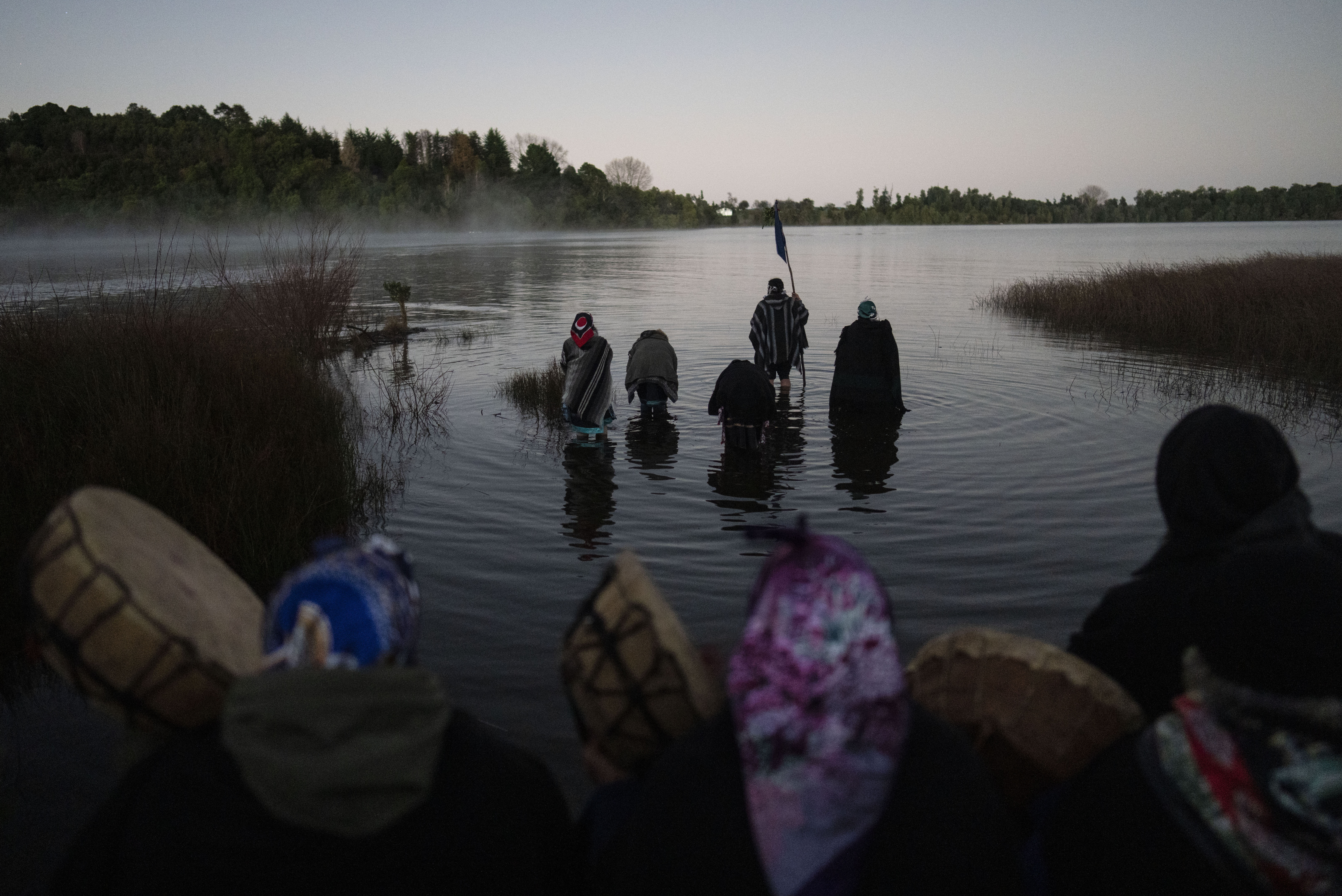 Mapuche people take a ceremonial dip in Lake Rupanko during a purification ritual marking We Tripantu, the Mapuche new year, in the Corayen community of Los Rios, southern Chile, on Tuesday, June 21, 2022. We Tripantu is one of the most sacred holidays for the Mapuche, Chile's largest Indigenous group. (AP Photo/Rodrigo Abd)
Mapuche people take a ceremonial dip in Lake Rupanko during a purification ritual marking We Tripantu, the Mapuche new year, in the Corayen community of Los Rios, southern Chile, on Tuesday, June 21, 2022. We Tripantu is one of the most sacred holidays for the Mapuche, Chile's largest Indigenous group. (AP Photo/Rodrigo Abd)
